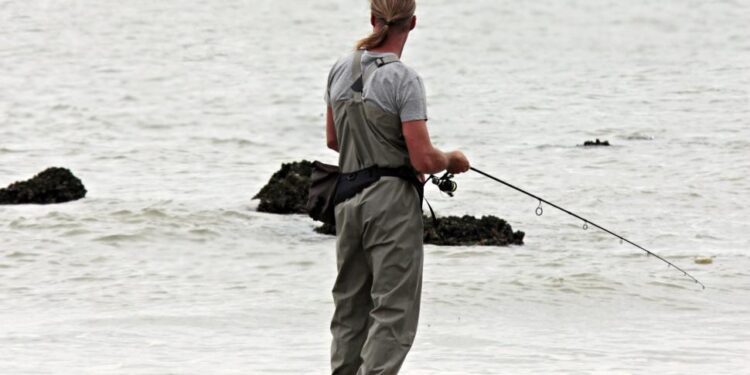Even though the church had numerous open windows and doors, the oppressive heat of August lingered in the atmosphere like an unwelcome guest. I took a moment to pause during my lesson, wiping the perspiration from my brow, and looked over at my students, all female entrepreneurs hailing from nearby villages in northern Ghana. One of them was dozing quietly, another was focused on breastfeeding her baby, while the rest appeared lost in thought. The sound of crickets, or another local type of noisy bug, filled the air.
“Alright, let’s take a break! We’ll reconvene here in 10 minutes.”
As our group began to scatter, Porter Anyagre, a charcoal seller who had lost her husband, grasped my hands firmly within hers. She held them tightly for several moments before speaking slowly, as if in doing so, I would comprehend the importance of her words even without understanding the language.
My translator, Salumi Yakubu, beamed as she conveyed her message. “She expressed her deep gratitude for your presence here and said she feels privileged to learn.”
Like many volunteers involved in nonprofit work through a business-as-mission trip, I anticipated that my stay in rural Ghana would come with challenges—strange food, the absence of air conditioning, and limited plumbing. Yet, as Anyagre held my hands and smiled, I came to understand just how trivial those inconveniences were compared to the potential transformations—my own included.
This is exactly what Videre aims to do: transform lives. Since launching its inaugural class in 2010, the organization has provided entrepreneurs in developing nations with training and microfinance loans, empowering them to leverage their businesses as vehicles for giving back to their communities. Participants are nominated by community members, and the program is structured into three phases, each lasting a week, teaching the fundamentals of starting or growing a business.
Volunteers, typically business experts or entrepreneurs themselves, serve as mentors. With its Christian foundations, Videre recruits local pastors and church members to act as translators, manage on-the-ground logistics, and foster trust among the local entrepreneurs. Videre is already witnessing beneficial effects on regional economies.
“We acknowledge that poverty isn’t just a physical, financial issue,” states Brittany Bradberry, Videre’s operations director. “Poverty encompasses emotional and spiritual dimensions as well. Therefore, we strive to address all these aspects and help foster both spiritual and physical change within a community.”
Consequently, every entrepreneur’s business plan must incorporate what Videre refers to as a Kingdom Impact Strategy, which outlines how they plan to utilize their businesses to share their faith and assist others.
Comfort Ibrahim, who graduated from Videre’s program in 2011, procures raw rice, mills and processes it, and sells the finished product to wholesale buyers. As a widow and the chief caretaker for seven children and relatives, she allocates a portion of her earnings to purchase school uniforms and learning materials for children in her village who cannot afford them.
Another Videre alumnus, Boajon T. Simon, journeys across 17 communities to distribute medicine. Before he joined the training program, he had already operated his business for five years, but it was through Videre that he could acquire a motorcycle using a business loan—an upgrade from the bicycle he used previously. He also donates part of his earnings back to his local community.
“If it weren’t for the program, I wouldn’t have been able to afford a motorcycle, which allows me to travel further and assist more individuals,” Simon explains. “I also learned much about managing my revenue—saving some, reinvesting a portion, and contributing the rest to aid others.” He later sought me out to proudly showcase his motorcycle, beaming beside his mobile pharmacy.
Concerns about the struggle to obtain loans in Ghana are frequently voiced by local entrepreneurs. Even when loans are approved, average lenders start with interest rates around 30 percent, escalating significantly thereafter. Conversely, Videre offers interest rates at 15 percent, requiring applicants to present viable business plans and successfully complete the program.
Acquiring a solid education in business and finance is even more challenging than securing financing. Many participants are illiterate, and a common sentiment among them is that the knowledge they gain through the program is its most precious aspect.
“Some entrepreneurs have come to our program utterly perplexed about their businesses’ financial losses,” Bradberry notes. “Ultimately, their idea simply wasn’t feasible. However, they likely hadn’t calculated the numbers and probably weren’t aware that they had to.”
The business training is deemed fairly demanding, particularly for those who are unaccustomed to sitting through extended sessions—take note of my quietly snoozing student. Nevertheless, the majority of enrolled entrepreneurs successfully complete the program, secure their loans, and initiate repayment promptly.
“It is truly remarkable what owning a business can accomplish in this region,” Bradberry remarks. “Enabling their children to attend school, positively impacting their communities, and having additional funds to save—these may seem straightforward, but for many, these realities were once nearly unattainable.”
As it comes time to bid farewell to my group of entrepreneurs, we capture photos and share embraces. They inquire about my next visit. It pains me to tell them that my plans are uncertain, so I promise that I will try my best to return. “And besides,” I add with a smile, “I don’t want anyone to forget me when you’ve all built successful businesses!” Their eyes sparkle as they chuckle.
Emotions swell in my eyes. Anyagre reaches out again, takes my hands, smiles sincerely, and eventually releases them.


